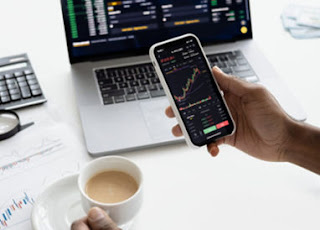When it comes to trading in the financial market, having the right broker can make all the difference. A broker is a professional who can help you buy and sell financial assets such as stocks, bonds, currencies, and commodities. They act as intermediaries between the buyer and seller, executing trades on your behalf.
With so many brokers available today, including the option of a “forex broker no spread,” it can be overwhelming to choose the right one for you. In this blog post, we will explore the key factors to consider when choosing a broker, including the availability of a no-spread option, and how to evaluate them to find the best fit for your needs.
Types of Brokers
There are three main types of brokers: full-service, discount, and online brokers.
- Full-Service Brokers: These brokers offer a wide range of services, such as investment advice, study reports, and account management. Full-service brokers charge higher fees for their services, but they are great for buyers who want individual advice and help.
- Discount Brokers: These brokers offer fewer services but charge lower fees than full-service brokers. Discount brokers are ideal for investors who want to save money on fees and are comfortable making investment decisions on their own.
- Online Brokers: These brokers operate solely online, offering an easy-to-use platform for investors to buy and sell assets. They charge low fees and offer a wide range of investment options, making them ideal for investors who prefer a DIY approach to investing.
Fees and Commissions
One of the most critical factors to consider when choosing a broker is the fees and commissions they charge. Brokers can charge various types of fees, including account maintenance fees, transfer fees, and trading fees. It's essential to understand the fees and commissions charged by your broker to ensure that you're not overpaying for their services.
It's also important to consider the minimum deposit required by the broker. Some brokers require a significant amount of money to open an account, while others have no minimum deposit requirements.
Trading Platform
A trading platform is a software application that allows you to buy and sell financial assets using your computer or mobile device. When choosing a broker, it's important to evaluate their trading platform to ensure that it meets your needs.
A good trading platform should be user-friendly, reliable, and offer real-time data and charts. It should also allow you to place trades quickly and easily, with minimal downtime or delays.
Research and Analysis Tools
Investing in the financial market requires knowledge and expertise. Therefore, it's important to choose a broker that offers research and analysis tools to help you make informed investment decisions.
These tools can include news feeds, market analysis reports charts, and historical data. The more information and resources available to you, the better equipped you'll be to navigate the market successfully.
Security and Regulation
When choosing a broker, it's essential to ensure that they are regulated by a reputable regulatory authority. Regulatory bodies such as the Securities and Exchange Commission (SEC) play a crucial role in protecting investors from fraudulent activities.
A regulated broker must adhere to strict guidelines and rules, ensuring that they operate ethically and transparently. It's also important to evaluate the security measures implemented by the broker to protect your personal and financial information.
Customer Service
Customer service is an often-overlooked factor when choosing a broker, but it's essential to consider. As an investor, you need to know that you can easily contact your broker if you encounter any issues or have questions.
A good broker should offer multiple channels of communication, such as phone, email, and live chat. They should also have knowledgeable and responsive customer support representatives available during market hours.
Before choosing a broker, it's a good idea to test their customer service by contacting them with questions or concerns. This will give you an idea of their responsiveness and the quality of their support. A broker with excellent customer service can make all the difference in your investing experience, giving you peace of mind and the confidence to navigate the market successfully.
Conclusion
Choosing the right broker is a critical decision that can significantly impact your investment success. By considering factors such as fees, trading platforms, research tools, and security, you can evaluate different brokers and narrow down your options to find the best fit for your needs. Remember, the broker you choose should align with your investment goals and preferences.



